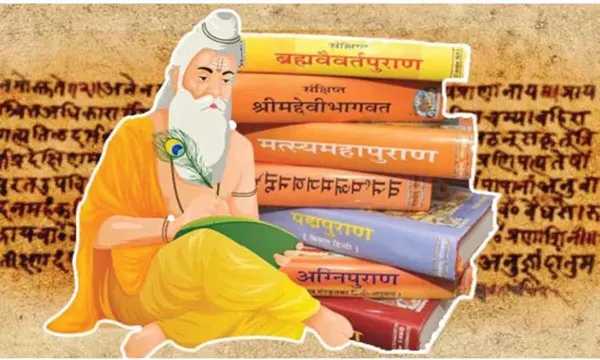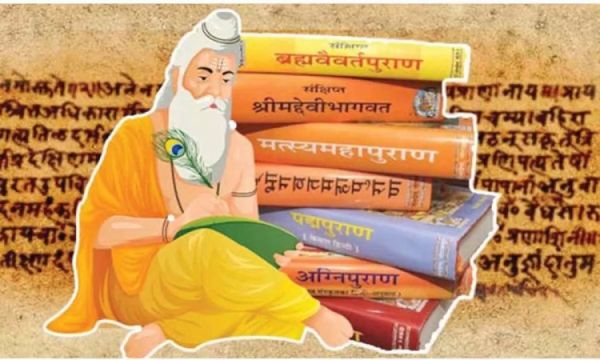
The most typical vexing traits of many political and bureaucratic higher-ups in government are disparities in compassion, biases in regard, and vile behaviors that are equivalent to feeding a select few in a golden basket while relegating others to the back burner. These disparities are slowly spreading like a terrible pandemic infection, even among wealthy non-political elites, particularly those who have “sudden riches” or “newfound wealth.” This phenomenon was seen not just in the early stages of the Kali Yuga, which is where we are now, but it has persisted throughout the millennia, skillfully adjusting to the dominant standards of each time.

The days of political leaders respecting moral standards and the ideals of immediacy and accessibility are long gone. It is disgraceful how many politicians, bureaucrats, and professional superiors behave when they meet “face-to-face” with old people and other notable people who are deserving of respect. Regretfully, their inclination for a repulsive mix of disregard and disdain, seldom upholding certain principles and fundamental etiquette, will eventually prove detrimental to them. Episodes from the epic Maha Bhagavatam often strike a chord with me whenever I encounter such true stories or real-life events from people close to me.
As part of their holy duty, gatekeepers Jaya and Vijaya barred the sages “Sanaka, Sanatana, Sananda, and Sanat Kumara,” who were disguised as boys, from approaching Vaikuntha on behalf of Lord Vishnu Darshanam. Their birth on Earth was cursed by sages. When Vishnu and Lakshmi came, they begged the elders to pardon Jaya and Vijaya for their unintentional error. After gatekeepers completed their three terrestrial lives, Vishnu let them return. The narrative teaches timeless lessons about decorum, carrying out one’s duties, and the courteous role of security guards. Another excellent lesson is when Vishnu himself gets up from his throne to welcome the sages.
Brahma, sages, gods, priests, patriarchs, and others assembled at a “Grand Sacrifice Satra Yaga.” Everyone present stood in awe of Shiva’s father-in-law, Daksha, as he arrived, with the exception of Brahma and Maheshwara. Daksha was furious to see Shiva remain seated when he welcomed his father, Brahma. Shiva was cursed by him. As a result, Daksha and Shiva became more hostile. This episode conveys a lesson about how people should behave around other people, control their anger, and keep gatherings civil.
The practice of “King Uttanapada,” who favored “Uttama,” his son from his favorite wife, and disregarded “Dhruva,” his son from a different woman, is comparable to the favoritism and neglect that are sometimes seen as a right or habit of political leaders today. After engaging in a great deal of penance, Dhruva gained the favor of Vishnu, who gave him the immortal “Dhruva Constellation” and placed him above the “Sapta Rishis” in the cosmic hierarchy. This case exposes partiality by showing how neglect pushes people to attain great success.
Brihaspati was disrespected by not being given a seat when he attended Indra’s court on a joyful occasion. Indra felt bad about what he had done, and Brihaspati departed in rage. The harm was already done. Demons, empowered by Shukracharya, attacked Indra after learning this. Brahma chastised Indra and recommended worshiping “Vishwarupa” as a stand-in guru. Vishwarupa concurred and gave Indra the “Narayana Kavacha,” a prayer of protection that assisted in driving off demons. If Indra had treated Brihaspati with dignity, these difficulties may have been averted. This provides modern leaders with timeless lessons on the value of civility, respect, humility, and good governance in interpersonal relationships. The consequences of disrespecting elders are shown.
The Prahlada narrative, Narasimha’s incarnation, and Hiranyakashipu’s defeat provide a deeper understanding of the authoritarian inclinations of powerful individuals, their repression of criticism, and their spiteful acts against critics. Born to the demon king Hiranyakashipu, Prahlada was a devoted devotee of Vishnu. He had an inquisitive and courageous nature from an early age. Prahlada was taught by the demon masters, yet he never wavered in his devotion to Vishnu. Even when Hiranyakashipu cruelly punished him, Prahlada’s faith held firm. After a fight between the father and the son, Narasimha finally came out of a pillar and murdered Hiranyakashipu. This sends the powerful message that truth and courage eventually triumph against tyranny. Whether or not they exhibit the qualities of Hiranyakashipu, those in positions of authority, whether past, present, or future, must take care to avoid coming into contact with Prahladas.
In “Churning of the Ocean,” Lord Vishnu said that in order to get the nectar of immortality, gods should briefly form an alliance with demons. Harmony existed until Dhanvantari showed up there with the nectar of immortality. Conflict between them for its ownership then broke out. By deceiving the demons, “Vishnu in the form of Mohini” gave the nectar only to the gods. Like current political partnerships that inevitably fall apart, the fleeting friendship between “Gods and Demons” ended and reverted to hostility as before.
These mythical events’ preamble reflects the unpleasant difficulties in creating political coalitions, particularly on election eve. This practical strategy is similar to today’s opportunistic politics, in which political parties work together to achieve their short-term, limited objectives. Coalitions and alliances such as the INDIA bloc, the National Front, the United Front, the NDA, the UPA, and the Janata Party are like “gods or demons.” In the beginning, the parties may work together amicably as they are united around a “Common Minimum Program.” But once the goal is accomplished, they compete for jobs, such as chief minister or prime minister, or even ministries. This often results in disputes that resemble the dynamics of the “Gods and Demons” during the “Churning of the Ocean.”
A crucial lesson may be learned from the “Vamana Avatar” incident, which serves as a warning to political parties and leaders who break their pledges to voters. When King Bali was about to give Vamana the “Three Feet of Land,” his guru, Shukracharya, cautioned him that he would soon lose all of his riches and counseled him to “break his promise.” Bali adamantly said that he would “not go back on his word” in the face of hardship. Bali kept his word and gained everlasting fame.
How to “Honor Guests in Dignified Manner” is shown in the Dharmaraja-performed “Rajasuya Ya-gna” event, in which prominent Kuru clan leaders, revered gurus, Duryodhana, Karna, Brahmins, and other monarchs were invited. Everyone received the same treatment when it came to entrusting royal duties. Political leaders’ rivalry, envy, and use of derogatory language in unparliamentary contexts are mostly comparable to Shishupala’s. When Sahadeva suggested that Lord Krishna be selected for the highest honor as part of “Vedic Protocols,” Shishupala became envious and began insulting him, which finally led to Krishna decapitating him with Sudarshana Chakra. Everyone who engages in unparliamentary behavior, personal assaults, or offensive statements should take note of this.
The significance of genuine friendship is emphasized in the narrative of Kuchela (Sudama). When Krishna saw his boyhood buddy Sudama, he had a deep reaction. Many political leaders now easily overlook former associates and mentors who previously paved the way for their ascent to powerful positions. Approaching people in positions of authority, money, or both these days is often a difficult undertaking that involves several levels of bureaucracy and security. Phones never stop going quiet!
At Lord Vishnu’s gates, this is not the time of “Jaya and Vijaya.” These days, visitors who want to see powerful people—particularly political and administrative leaders—must rely only on their personal staff and proxies, not to mention security guards who don’t mind being physically insulting. The threat of “bouncers” is added to this. As seen lately in a theater, their work and mission of enforcing the law is utterly heinous!
The public may freely express their concerns when leaders are available and approachable, which is a prerequisite for effective good governance. These are those who, out of respect, want to describe their accomplishments, both personally and professionally, or who want to provide suggestions, etc. Leaders must make sure that these guests are always given a chance to speak. It is up to them how they spend their time.